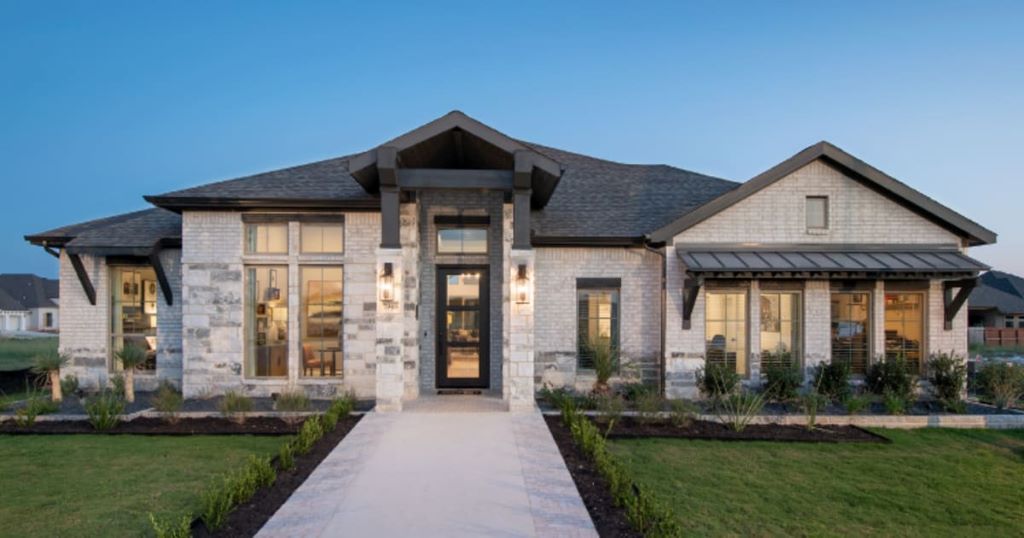Jacksonville Roof Design Trends for Modern Homes

As architectural preferences shift toward cleaner lines, energy efficiency, and regional durability, Jacksonville roof design trends for modern homes have evolved significantly. Today’s homeowners aren’t just choosing roofs based on aesthetics; they’re making data-driven decisions rooted in climate adaptation, long-term value, and eco-conscious living. In Northeast Florida, where subtropical storms and humid summers are the norm, roof design must meet both beauty and function.
Embracing Low-Slope and Flat Roofs
Modern homes in Jacksonville are increasingly leaning toward low-slope or flat roofs. These designs complement minimalist and contemporary architecture while offering practical benefits. Flat roofs allow for rooftop installations like solar panels or rooftop gardens—both trending strongly in sustainable design.
According to a 2023 Houzz survey, 37% of homeowners opted for flat or low-slope roofing when updating their home’s exterior. In Jacksonville’s warm climate, flat roofs also allow for improved ventilation systems and the integration of cool roofing materials that reflect heat, lowering cooling costs.
However, critics argue flat roofs demand more maintenance and are prone to drainage issues. While that’s true in older systems, new waterproof membranes and innovative slope strategies have drastically improved longevity and water management.
Metal Roofs Take Center Stage
Metal roofing has surged in popularity across Jacksonville. Homeowners are attracted to its sleek look, fire resistance, and impressive durability—especially important in a hurricane-prone region. Metal roofs can withstand wind speeds up to 140 mph, a crucial factor in Florida.
While some homeowners shy away from the initial cost, the long-term savings are hard to ignore. The Metal Roofing Alliance states that metal roofs can last 40-70 years, nearly triple the lifespan of asphalt shingles. Plus, they offer substantial insurance discounts in storm-prone areas like Duval County.
Critics argue that metal roofs are noisy during heavy rain. However, this issue is often solved with proper insulation and underlayment, making noise concerns a thing of the past in most modern installations.
Sustainable and Energy-Efficient Materials
Eco-conscious design isn’t just a trend; it’s a movement. Jacksonville’s modern homeowners are choosing sustainable roofing materials like recycled shingles, green roofs, and solar-integrated panels. The goal? Lower carbon footprints and energy bills.
Solar roofing is especially trending, thanks to Florida’s generous sunshine. Tesla’s Solar Roof tiles and other innovative systems are gaining traction for their aesthetic integration and tax incentives. According to EnergySage, Florida homeowners save an average of $1,500 annually on electricity bills with solar installations.
Green roofs are less common in Jacksonville due to humidity but are starting to appear on larger, luxury modern builds. These living roofs provide natural insulation and reduce stormwater runoff—a growing concern with rising sea levels and increasing rainfall.

Dark and Matte Roof Colors
Gone are the days of only gray or brown shingles. One of the boldest Jacksonville roof design trends for modern homes involves dark, rich, matte color palettes. Black metal panels and charcoal shingles give homes a cutting-edge, high-contrast look against Florida’s bright skies.
These color choices also hide wear and dirt better than lighter options. However, they do absorb more heat, which might seem problematic in Jacksonville’s climate. That’s where advanced reflective coatings and ventilation systems come in, keeping homes cool without sacrificing style.
Asymmetrical Rooflines and Multi-Pitch Designs
Modern architecture thrives on disruption. That’s why asymmetrical and multi-pitch rooflines are dominating upscale home designs in neighborhoods like Riverside, San Marco, and Nocatee.
These dynamic shapes give homes a unique visual identity while improving interior ceiling heights and accommodating skylights or solar panels. Although these roofs can be more complex and costly to build, the payoff in property value and visual impact is significant.
Architects cite these styles as ideal for integrating advanced gutter systems and rainwater harvesting, which is becoming a popular eco-feature in new constructions.
Smart Roofing and Integrated Technology
Tech-savvy homeowners in Jacksonville are integrating smart features into their roofing systems. This includes moisture-detection sensors, automated attic vents, and solar shingle monitoring apps.
According to a report by Allied Market Research, the global smart roofing market is expected to grow by 16.2% annually through 2030. Jacksonville’s modern homes are tapping into this shift, not just for convenience but also for safety and efficiency.
These systems allow real-time updates and early warnings, reducing repair costs from undetected leaks or insulation failures.
Blending Traditional and Contemporary
Jacksonville’s historical architecture still influences modern roof design. Homeowners are blending traditional Southern elements—like deep overhangs and gable forms—with modern materials and layouts.
This hybrid design approach allows for personalization while respecting the architectural heritage of areas like Avondale or Ortega. Using clay tile patterns in metal or synthetic materials allows for the same classic look with far less maintenance.
This combination of form and function resonates with homeowners who want a modern aesthetic without completely abandoning the region’s identity.
Read More: A Comprehensive Guide to Roof Inspections: What Every Homeowner Should Know
Frequently Asked Questions
- What roofing materials are best for Jacksonville’s climate?
Metal, composite shingles, and cool roofing materials work best due to humidity, storms, and high temperatures. - Are flat roofs a good idea in Florida’s rainy weather?
Yes, if built with modern waterproofing and drainage. They’re ideal for solar and modern design aesthetics. - How long do modern metal roofs last in Jacksonville?
Properly installed, they can last 40–70 years, resisting wind and corrosion better than traditional options. - Are solar-integrated roofs popular in Jacksonville?
Yes, especially with rising energy costs. Federal tax credits and sunny weather make solar roofs very appealing. - Can dark-colored roofs be energy efficient in Florida?
With reflective coatings and ventilation, yes. Technology has improved energy efficiency despite darker tones. - How much does a modern roof cost in Jacksonville?
It varies by material and design. Flat or metal roofs cost more initially but offer better long-term savings. - Are asymmetrical rooflines just a trend or a practical feature?
They’re both. They provide architectural appeal and functional benefits like better water flow and solar orientation.
Final Thought
Jacksonville roof design trends for modern homes blend innovation, sustainability, and architectural boldness. As the city grows and design preferences evolve, homeowners are making smarter, more stylish choices. From energy-efficient metal to smart-integrated roofing, the options reflect both personal taste and environmental awareness. With climate resilience, curb appeal, and return on investment at stake, staying ahead of these trends isn’t just stylish—it’s strategic.
For homeowners planning a roof redesign or new construction in Jacksonville, understanding these trends isn’t optional. It’s essential. The future of roofing is not just about covering your home; it’s about elevating it.
Read More: Why does roofing leak?


